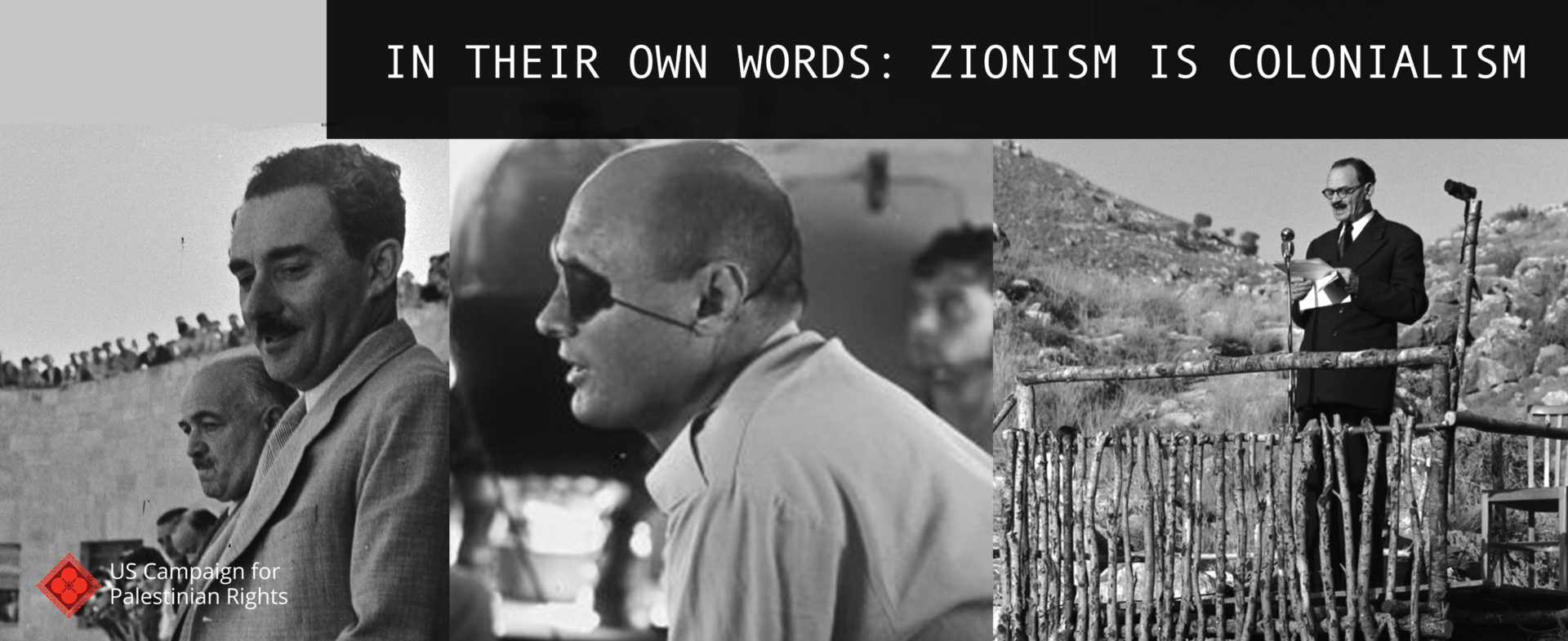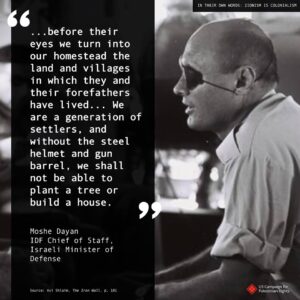Zionism: In Their Own Words

It’s not just about occupation. It’s about Zionism.
This past June, when we marked 50 years of Israel’s occupation of the Gaza Strip and West Bank, including East Jerusalem, we were clear that this was one of many important anniversaries in 2017. These include last week’s anniversary of 100 years since the Balfour Declaration, and, later this month, 70 years since the UN recommended the partition of Palestine – resulting in the violent displacement of 750,000 Palestinians and denial of their return by Israel.
These anniversaries help us understand the intended permanence and totality of Israel’s settler colonial project – something which Zionist leaders seeking a Jewish state in Palestine spoke about openly. Zionist leaders understood that the only way to manufacture a Jewish majority was to drive out the indigenous Palestinian population and to settle Jewish people in their place.
 This week, we are releasing a series of powerful graphics, “Zionism is Colonialism: In Their Own Words,” to highlight that Zionism is – and has always been – a settler-colonial project. Israel commonly justifies its oppressive policies in the name of security, but these graphics lay bare the reality that what we see on the ground today. The siege of Gaza, the ongoing displacement of Bedouins in the Naqab inside Israel, and the ban on return for millions of Palestinian refugees are all manifestations of Zionism. Early Zionists knew that this would be necessary to create and maintain a Jewish state in a land whose native population was not majority Jewish.
This week, we are releasing a series of powerful graphics, “Zionism is Colonialism: In Their Own Words,” to highlight that Zionism is – and has always been – a settler-colonial project. Israel commonly justifies its oppressive policies in the name of security, but these graphics lay bare the reality that what we see on the ground today. The siege of Gaza, the ongoing displacement of Bedouins in the Naqab inside Israel, and the ban on return for millions of Palestinian refugees are all manifestations of Zionism. Early Zionists knew that this would be necessary to create and maintain a Jewish state in a land whose native population was not majority Jewish.
Please share these graphics on Facebook and Twitter.
Join us and the Palestinian Youth Movement on Monday, November 20 at 8:30 PM Eastern for a webinar to discuss how Zionism has not only affected Palestinians, but peoples across the region and world.
Israel’s ability to maintain its settler colonial project depends on the complicity and active support of other oppressive regimes in the region. It is also dependent on the economic and political power it has built exporting strategies and tools to other forces worldwide – strategies and tools developed repressing Palestinians.
What does this mean for those of us organizing in the US in support of Palestinian rights? Register here to join the discussion!